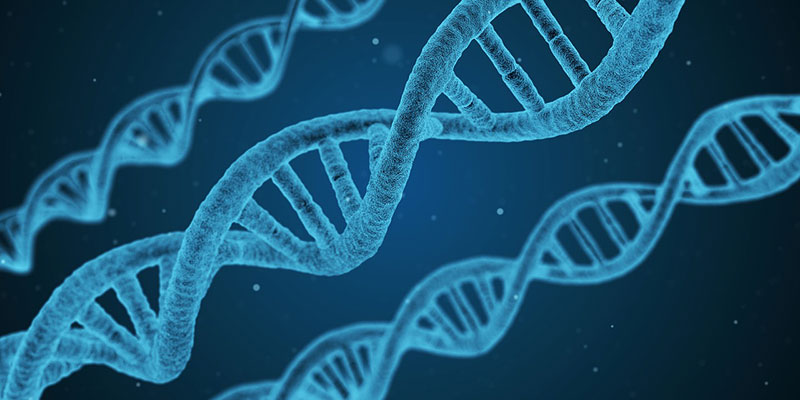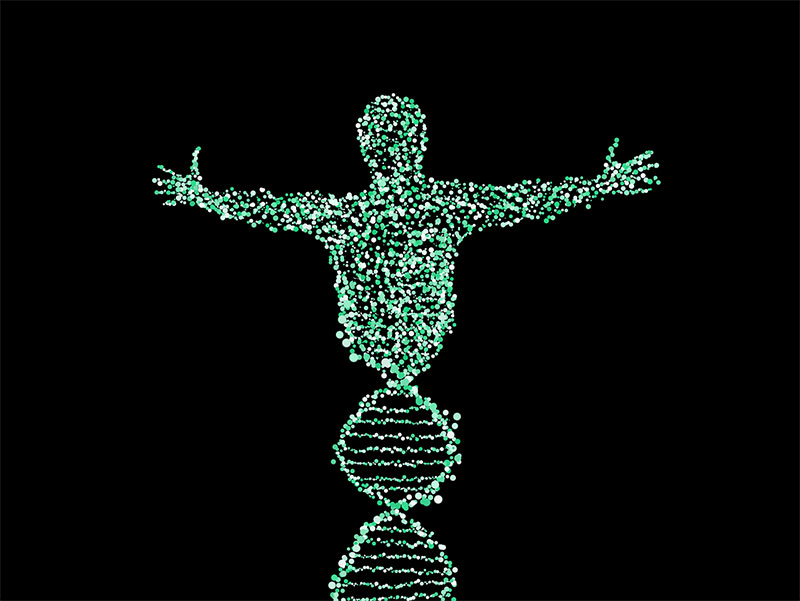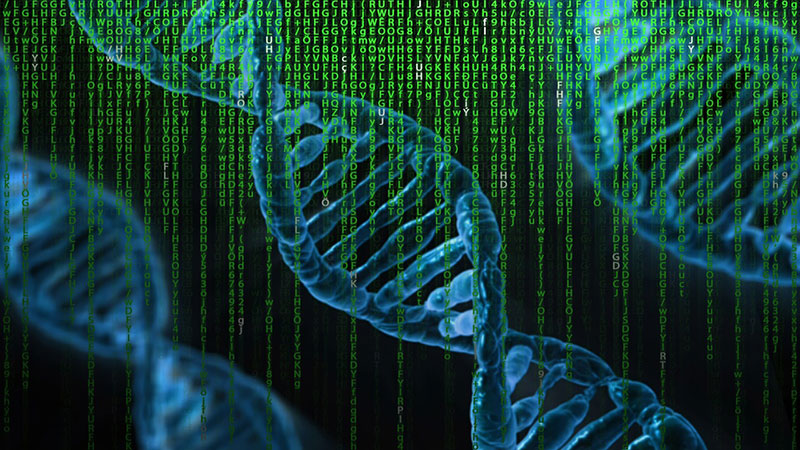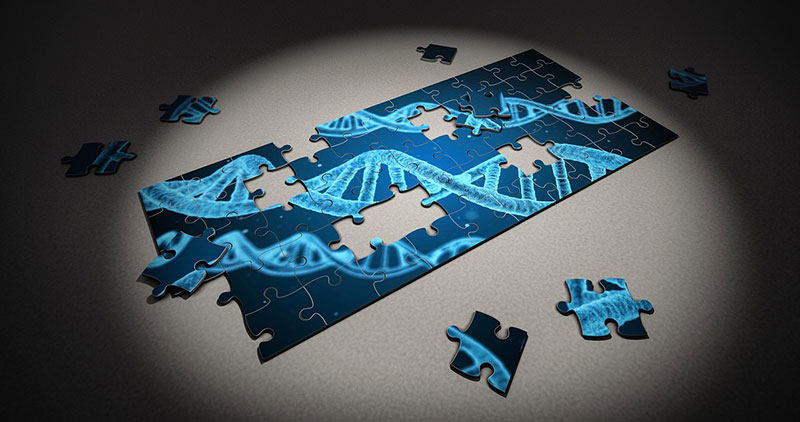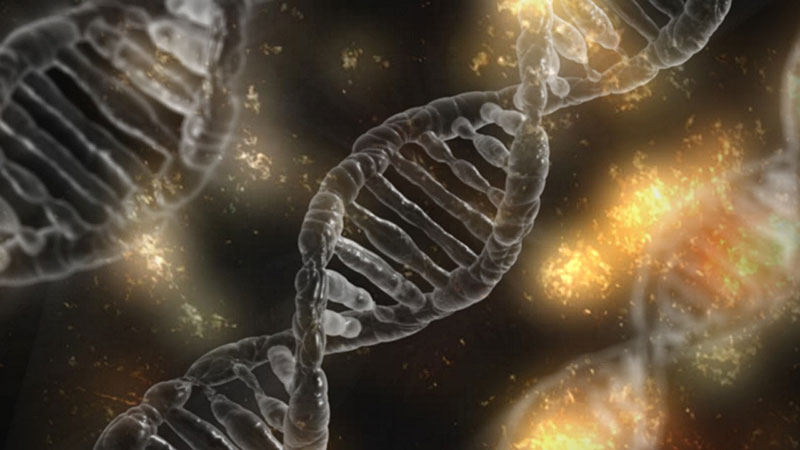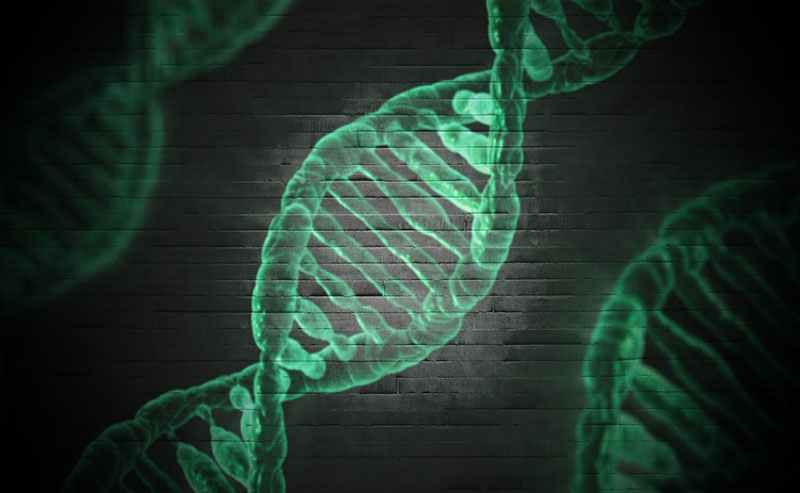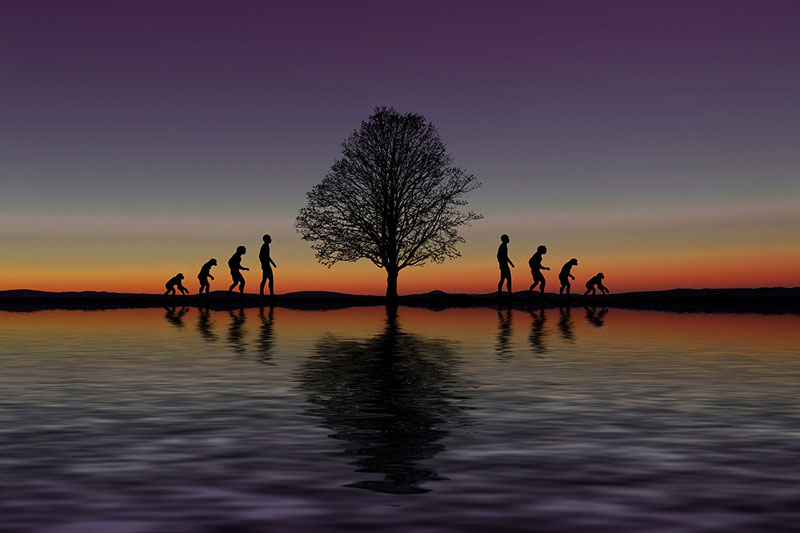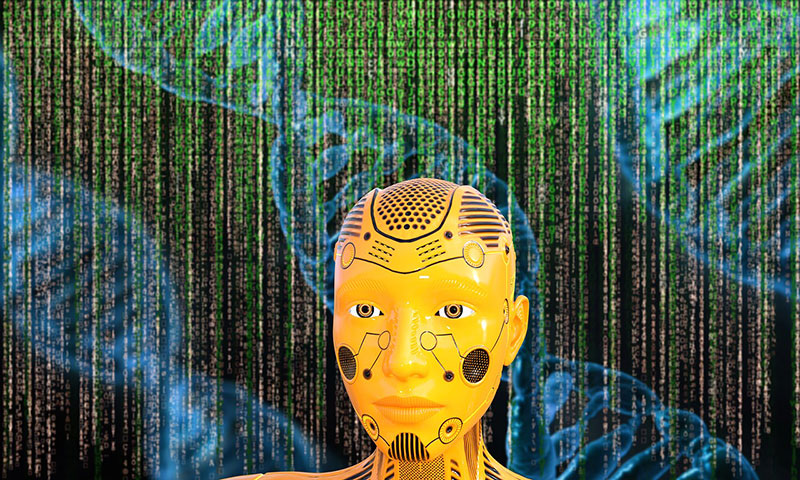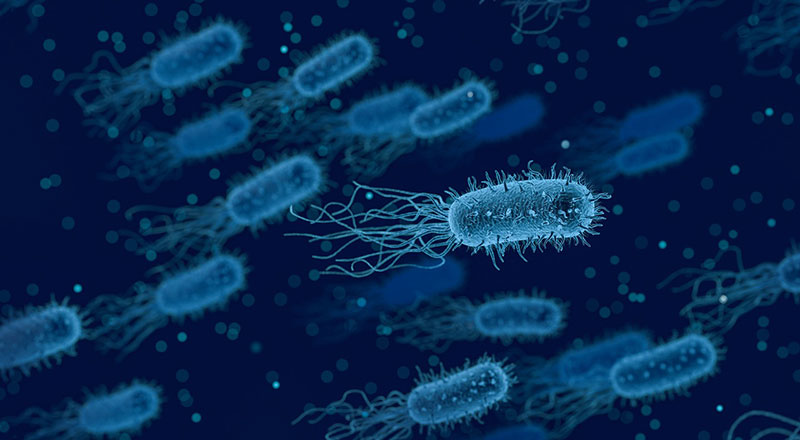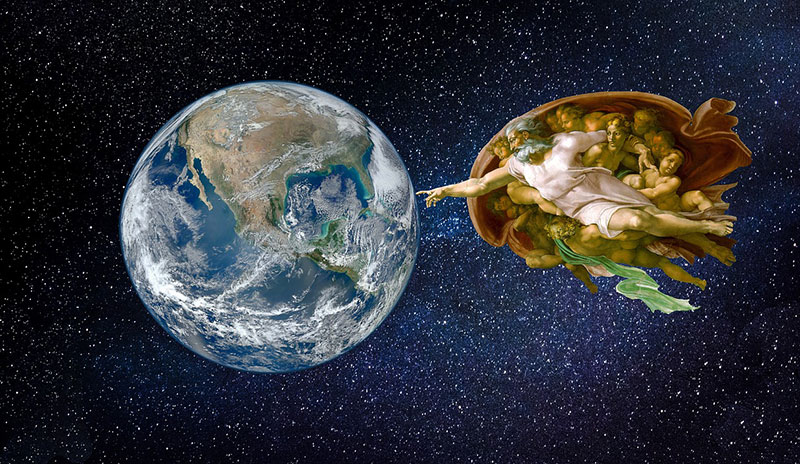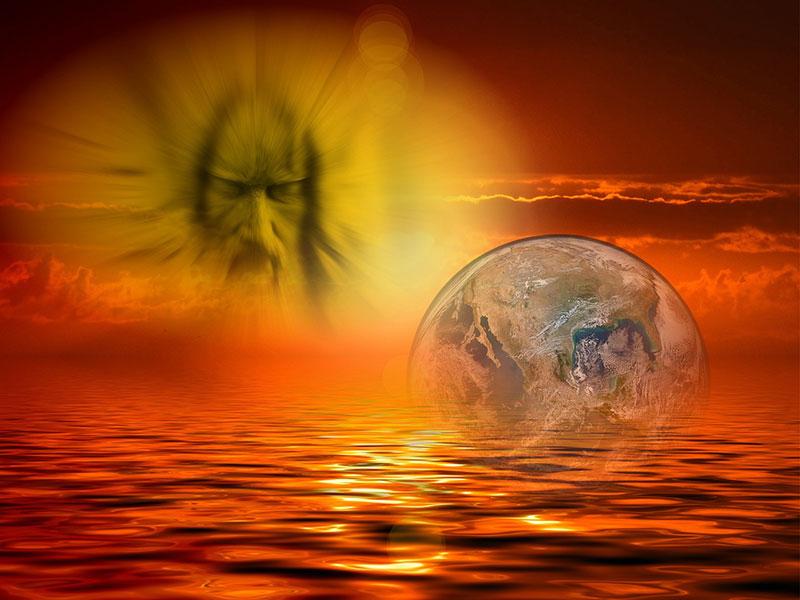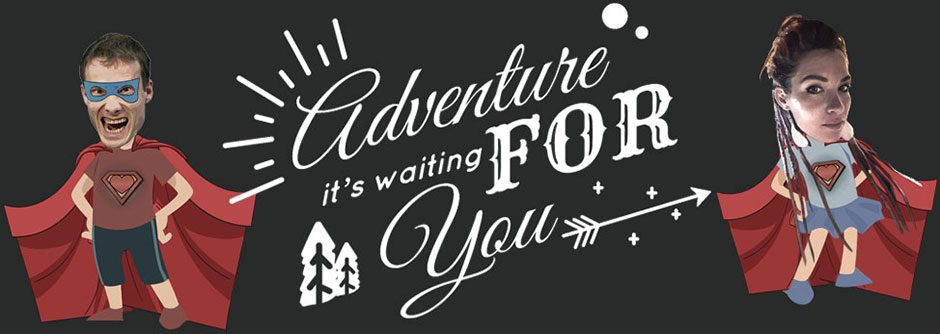Genetic research: What do we really know?
What insights did genetic research actually bring us?
Officially, we have made almost earth-shattering progress in the field of genetic research in recent decades. We can decipher almost the entire human blueprint, we can manipulate the genes of animals and plants to make them taste like salami or become resistant to certain germs, we can create a genetic fingerprint to uniquely identify someone, we can determine who is whose father, and we can even clone entire beings so that we have them twice if a specimen is ever lost.
So much for the official explanation. But what does it really look like behind the veil of popularity?Inside knowledge from genetic research
An absolutely amazing answer to this question we got today by chance from a side from which we would not have expected it. Once again we were guests of a priest who had the memorable name "Don Vladimiro". This was not because he came from Russia. It was because his father was a convinced communist and revolutionary at the time. For this reason he gave his son the name of the most famous communist he knew: Vladimir Lenin. That Vladimir translated means "The peace bringer" and that it was a biblical name. And in a way, the name thus also embodied a little bit of the life of the man who carried it.
Unlike all the other pastors we have been guests with in Italy so far, which Don Vladimiro, despite his set age, is only just starting out in this field. Previously he had not only been a convinced atheist, but had also worked for about thirty years as a scientist in the field of genetic research. The interesting thing is that it was precisely this scientific work that finally led him to believe.
But let us start at the beginning. As an insider of genetic research and Don Vladimiro reported first-hand what genetic research was actually about and what successes have been achieved so far.Genetic research as an explanatory approach for the development of diseases
First of all, genetic research is, of course, about the so-called theory of inheritance, i.e. the question of how certain qualities, traits and character traits, but also diseases and disabilities, are passed on from one generation to the next. According to theory, our genes are responsible for this.
Within orthodox medicine, this theory seems to be the one that is still most comprehensible and accurate. It says that our genes are not only responsible for various physical and character features of our ancestors, but also for their diseases.
This can indeed be observed in some cases. However, it is still unclear how and according to what pattern this inheritance takes place. With the discovery of DNA, we were sure that we had finally achieved a breakthrough. It was assumed that it contained our entire "blueprint" and thus also the laws of inheritance. In 2001 it was even said that it had been possible to completely decode human DNA.
Has the human genetic code been deciphered?
"Among us scientists we celebrated as if we had succeeded in seizing world domination," commented Vladimiro jokingly.
But the joy did not last long. For it soon became clear that entire sequences had been overlooked and others had been completely misinterpreted. To avoid being a complete laughing stock in public, they simply waited two years until the most serious mistakes had apparently been corrected. Then they simply announced the now-really-complete decryption, and hoped that the first message of this kind was no longer present at anyone.
The plan worked and genetic research was able to save face. But the original problem was far from solved. Instead of a great, unprecedented breakthrough that revolutionized medicine and biology, we found that we now knew even less than before the genetic material was decoded. Instead of answers, new questions had almost exclusively emerged, and scientists had to admit to themselves that they didn't even have the slightest idea how to find a solution.
"We know nothing!"
Then, in 2006, at an expert meeting in Berkeley, California, the leading genetic researchers realized that they were not even able to clearly define what a gene actually is. And again five years later Craig Venter, one of the leading researchers in this field, confessed succinctly: "We don't know anything!
In contrast to the previous statements on this subject, this one can probably be said not to be exaggerated. For example, we now assume that DNA is made up of about 3.2 billion base pairs. We do not know exactly how many of them there are, if only because we do not even know how many genes, i.e. base chains, we actually possess. All figures in this area are based on estimates and extrapolations from examined microorganisms.
The original idea behind this was that if a tiny nematode measuring about 1 millimetre had 23,000 genes and a human being was significantly larger, then he would have to have significantly more genes. For some reason, the corresponding extrapolations resulted in a number of up to 140,000 genes. Today, it is assumed that we have fewer genes than the nematode and that the number of genes would have to be between 20,000 and 22,000. Unfortunately, our knowledge in this area is not even sufficient to be able to safely rule out one of these conflicting estimates. To put it badly, our current knowledge about the number of genes in our body can be specifically limited to "relatively many".
What are our genes responsible for?
For some of the base pairs we know the order in which they occur, and in some cases there are well-founded assumptions about which gene segments are associated with which parts of the body, body functions or diseases. But instead of the expected medical breakthrough, the only thing that was found was that this sequence, which was thought to be the universal code of life or disease, says surprisingly little. For example, the same gene sequences that we associate with certain diseases regularly appear in perfectly healthy people, while others get sick without having the allegedly disease-causing sequences. How can this be? Doesn't this alone clearly refute the common theory of hereditability?
Even the general conviction that our genes form the blueprint for proteins and other messenger substances in the body is not quite as based on facts as we would like to believe. For as far as can be said so far, this applies to just 1.5 percent of our DNA. As for the remaining 98.5 percent, we are still groping in almost complete darkness. However, this does not prevent researchers from using the 1.5 percent to carry out genetic engineering experiments on plants and animals, which they then claim with conviction to be 100 percent harmless and would not even have to be labelled on our food in the long term.
Unwavering confidence in genetic research
Ironically, the billions of taxpayers' money that have been pumped into this branch of science since the beginning of genetic research have led to a permanent increase in the civilian population's confidence in the informative value of our genetic make-up, while at the same time maintaining the same level of ignorance. We trust the genetic fingerprint, the paternity test, the genetic analyses that researchers use to calculate the likelihood of contracting certain diseases, and the preliminary genetic tests that we use to identify certain disabilities in unborn children.
That this trust is perhaps a little naive is shown by recent findings by geneticists, according to whom the gene strand is by no means a fixed construct that can be read like a book. Instead, it is constantly changing, just as our lives are subject to constant processes of change. In other words, a genetic fingerprint that I make of myself today does not necessarily have to match the one I had made 10 years ago or will have made in 10 years' time. So Craig Venter was really not exaggerating when he looked back at his results and said: "We don't know anything!"
Research without progress
The disappointment of years of completely fruitless research could not have hit Don Vladimiro harder. In the end, the only thing he could find out for himself with 100% certainty was that the theories on which science had based its research were completely wrong. So it was not entirely true that nothing was known. You knew that what you thought you knew was wrong before. But genetic research simply did not want to offer another solution. "What are the misconceptions in genetic research?" we wanted to know.
Is the theory of evolution really true?
"First of all," Vladimiro began, "we consult genetic research as a proof, or at least an indication, of the correctness of the theory of evolution, although in all this time we have not been able to find anything to support this theory. The more and more I studied it, the more I realized that evolution as we assume it never existed and cannot exist.
Because the theory goes something like this: All plants and animals on our planet consist of the same basic building blocks and have a similar blueprint. From this we conclude that one must have evolved from the other, since some of these beings existed before the others in time.
Same building materials - Different origin
"But how do you come to such a conclusion," asked Don Vladimiro and then continued: "Let's take another example to make this clear. My house is made of stones, or more precisely, of sandstone blocks. The Colosseum in Rome is made of more or less the same stones, but it is much older. So, according to the theory of evolution, my house should have developed from the Coliseum. But of course that is not the case. They are two constructions made of the same building material that were built at different times and in different places completely independently of each other. And this is exactly what we have to assume for living beings.
In the entire history of genetic research, we have not been able to discover a single "intermediate being", i.e. a being that has taken half a developmental step from a monkey to man, for example. There are whole apes and there are whole humans. There is nothing in between. So what leads us to believe that one has developed from the other? Butterflies develop from caterpillars, yes, you can observe that! But humans from monkeys, which in turn develop from other mammals, on frogs, fish and, at the beginning of life, from marine microbes? No, rather not!
Arguments against the theory of evolution
In the course of the conversation, Don Vladimiro presented some further arguments why such a development would not have been possible from a purely scientific point of view alone.
A comprehensive presentation of the reasons why the formation of the earth and life most probably did not take place in the way generally described can be found in the following lecture by Hans-Joachim Zillmer:
But here is the most important in brief. Thus, the theory of evolution is based on two basic assumptions, which on closer examination, however, prove to be erroneous:
From simple to complex
The first one is: A development always takes place from simple to complex. In this way, primitive life forms such as unicellular organisms have evolved into forms as complex as humans. But what leads us to assume that a human being is more complex than a cormorant, for example, in terms of its basic biological structure?
Sure, we have a fairly sophisticated brain. A brain with the help of which we can think many, mostly senseless thoughts about our life, the universe and all the rest. The reason I write senseless here is that although we are theoretically capable of complex thoughts. In practice, however, most of our lives will be stuck in the same thought loops without making much progress. Even if we do not like to admit it, we are not a species that consists mainly of Einstein's and Newton's. For the majority of our representatives, their thoughts revolve mainly around food, sex, recreational distractions and the like. No offense, and we don't pretend to be, but that's the way it is. But back to the topic!
Which is the most complex creature?
Apart from our brain, which may be ahead of some other species in terms of thought complexity, we are not physically very complex. We do not even have a tail that we can consciously control independently of arms and legs. As humans we cannot hear ultrasound. Nor can we produce cobwebs with which we can catch our food and build a home for ourselves. We also cannot catch flies or walk on the ceiling. We cannot even climb particularly well, run particularly fast or hold our breath for particularly long. We are, if you mean well with us, just mediocre in most criteria of biological complexity.
Are we humans the most intelligent species on Earth?
There are spider species that perform a mating dance that is so complex in its richness of variation that no human being has yet succeeded in deciphering its meaning. However, if the spiders do not master it to perfection, they will not get the chance. And we are talking about spiders whose brains are only the size of a pinhead.
Crows are known to communicate with each other in a way that is at least as complex as human language. They use more sounds than we do. Moreover, as far as we have been able to decipher it so far, they even have the possibility to exchange information about time sequences.
The intelligence of dolphins and the memory of elephants are well known and legendary. In addition, there is a multitude of animals that have one or more senses more than we humans do. Just to integrate these additional sensory impressions into the overall picture of their perception, their brains must already have a degree of complexity similar to ours. So once again: Why do we believe that we are the end result of evolution?

As the only species that consciously destroys its own habitat we still believe to be the most intelligent
The strongest survivor
But of course all these arguments are still compatible with the basic theory. This is the case if one assumes that there are several lines of development, each of which ends with a complex being that has developed from more primitive ones. But now we come to the second assumption of the evolution theorists, which ultimately throws everything overboard.
This assumption is: Survival of the fittest! - The strongest will survive
The theory behind it is the following: We assume that each species evolves into something else at random and that natural selection takes place. So anything that is too weak does not survive, cannot reproduce and dies out again. From this it follows that the beings that gradually develop further and further apart are better and better adapted to their environment and therefore have a greater and greater chance of survival. But is that really so?
Is a complex living being automatically more viable?
Let's look at us humans. If we expose ourselves to temperatures of more than 50°C or less than 10°C for a longer period of time without protecting ourselves, we die. If we are deprived of our oxygen, water or food for a relatively short time, we die. If we jump down a cliff that is just four or five times as high as we are, we die. (For many, even the simple height or less is enough). If we put a crate on our head that weighs about 10 times as much as we do, we collapse under it.
For ants this would be no problem. Similar to how some snakes can go without food for up to half a year. But even all these animal performances pale in comparison to the ability of the so-called bear animal. This is a small, furry-looking protozoon. It has been a mystery to scientists for years because it seems to be immortal. You can freeze it to absolute zero, boil it or flambé it. It can be deprived of oxygen, thrown into oil or acid, exposed in a vacuum or unimaginable pressure or bombarded with radioactive radiation. None of these things can harm it.
Can the theory of evolution be true at all?
And with this knowledge we now return to our theory of evolution and ask the question that really catches the eye: Why on earth should such an incredibly resistant creature like the teddy bear get the idea to develop into something more complex, only to die at the slightest imbalance in its living environment? Does that make any sense?
Most of all, however, Don Vladimiro was most troubled by the viewpoint that science was starting from a godless system in all this. According to official scientific opinion, the entire evolution of the universe since the Big Bang (the alleged one) has been purely accidental. Things kept coming together in new constellations. At some point, something like the first, primitive life arose, which then became more and more complex. By chance, of course. Again, a question arises: Why should this be so? And how on earth would it even be possible?
Did life happen by accident?
"Let's take a simple example," said Don Vladimiro, "The table we are sitting at right now basically consists of no more than three wooden planks screwed together. So compared to the complexity of even the simplest life form we know, its construction is ridiculous.
And yet..:
If we were to take it apart today and put the boards on the floor one by one, and then wait here for the rest of eternity, it would still not turn back into a table by accident and of its own accord. Maybe a storm or an earthquake would come and mess up the boards, but in the end we still wouldn't have a table. Even this simple, primitive construction is already too complex for mere coincidence. It requires a master builder, a constructor.
Too complex for a coincidence
Now pay attention! Let's just take the short nerve that connects the retina of our eyeball with the back of our brain. Its function is merely to transmit the optical stimuli received by the eye to our brain. It is altogether not much thicker than two or three millimetres. But it consists of more than a million individual nerve cords. These run like cables next to each other and are shielded from each other. Thanks to these nerve cords, it is possible to transmit every single detail of our environment perfectly to our brain every second. Only there does our mind select, on the basis of our previous experiences, which of this information is passed on to our consciousness and which is stored in the archive virtually unseen. But even the stored information is still available for the rest of our life. Provided, of course, that we succeed in gaining access to it.
Even too complex for our technology
Let's keep moving:If we humans wanted to create a similarly perfect image transmission with our technical possibilities, we would have to make an almost unimaginable effort. We would have to build a high-rise building with around one million floors, each with one million rooms. Each room would contain one of the most powerful computers we currently possess. All of them would be networked with each other via the best data processing cables that we know. Then, and only then, would we perhaps have a chance to obtain a similarly accurate representation of our surroundings as our eyes, the optic nerve and our brain can. And despite all this, we are still naive enough to believe that something like this could have come about by pure chance and without a Creator. Doesn't that seem almost ridiculous to you?"
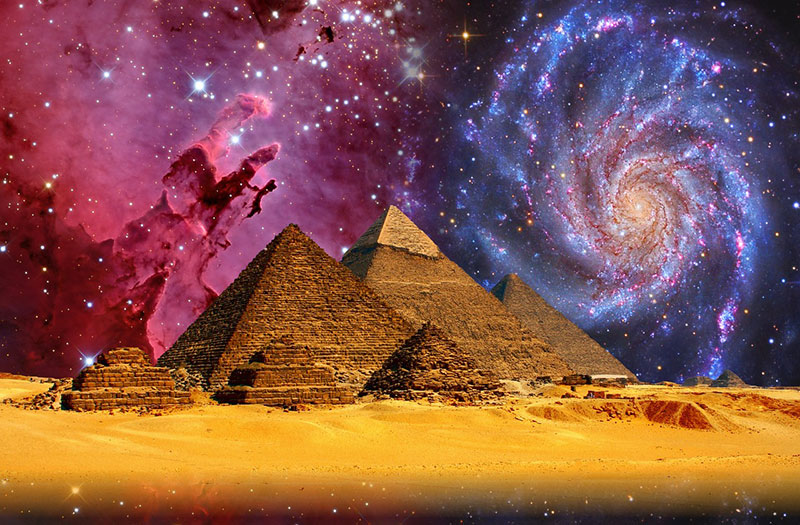
Although the universe is so complex that we do not understand it, we believe that it was created by pure coincidence
Where do we find the right answers?
After he had recognized this for himself a few years ago, he could no longer pursue his profession. Everything seemed completely wrong to him. It was almost as if one consciously followed a lie and claimed that one was trying to find the truth. So finally he had thrown everything away and entered the seminary. For two years now he had been a pastor and tried to find the truth in the words of God. But of course, it had long been clear to him that many of the answers given to him by the Church were no less outrageous than those given by scientists before. Somewhere it was necessary to discover his own way of finding the truth. But after all, that was what they had come here to earth for.

In the end, does the Bible offer us more answers than science, or do we simply choose between two wrong ways?
More on the topic "Errors of the theory of evolution and genetic research"
[amazon box="377665029X" title="Die Evolutions-Lüge: Die Neandertaler und andere Fälschungen der Menschheitsgeschichte Unterdrückte Fakten, verbotene Beweise, erfundene Dogmen" description="Bereits mit seinem in zehn Fremdsprachen übersetzten Bestseller "Darwins Irrtum" wies Hans-Joachim Zillmer nach, dass es keine Evolution gab und die mit dieser Theorie fest verknüpften geologischen Zeitansätze falsch sind. Mehrere seiner schon 1998 getroffenen Voraussagen sind inzwischen bestätigt worden." ] [amazon box="3981823605" title="Irrtümer der Erdgeschichte" description="Ein gigantisches Feuerwerk von Fakten und Beweisen, aber auch Ausgrabungen und Lokaltermine auf allen Kontinenten ermöglichen eine radikale Revision bisheriger Vorstellungswelten zugunsten neuer, richtungsweisender Denkmodelle." ] [amazon box="3776626720" title="Die Erde im Umbruch: Katastrophen form(t)en diese Welt" description="Schwere Naturkatastrophen und gravierende Klimaumstürze der letzten Jahrtausende führten zu einer grundlegenden Umbildung der Erdkruste. " ] [amazon box="378442709X" title="Darwins Irrtum" description="Sollte Zillmer recht haben -- und er ist beileibe kein Hirngespinnst-Theoretiker wie ein von Däniken oder ein von Buttlar -- dann müssen wir die Entstehungsgeschichte der Erde bald umschreiben" ] [amazon box="3981823605" title="Evolutions-Dogma wissenschaftlich widerlegt" description="Seit über 100 Jahren gibt es die Evolutionstheorie. Sie wurde in einer Zeit aufgestellt als es noch keine Genanalyse gab, die statistische Methoden steckten noch in den Kindesschuhen und auch in der Medizin und Biologie waren viele Zusammenhänge noch nicht bekannt. " ]The slogan of the day: We do not just know nothing! We know that the only thing we think we know is definitely wrong. Stage for the 1st day: Distance: 38 km; difference in altitude: 150 m; finish: vicarage, Sant`Ilario del Jonio, Italy Stage 2: Distance: 17 km; Altimeter: 66 m; finish: Konvent, Bianco, Italy Stage 3: Distance: 23 km; Altimeter: 130 m; finish: Parsonage, Brancaleone, Italy Stage 4: Distance: 21 km; Altimeter: 60 m; finish: Community of the Salisiani, Bova Marina, Italy Stage 5: Distance: 22 km; difference in altitude: 70 m; finish: private apartment, Joniche saltworks, Italy

